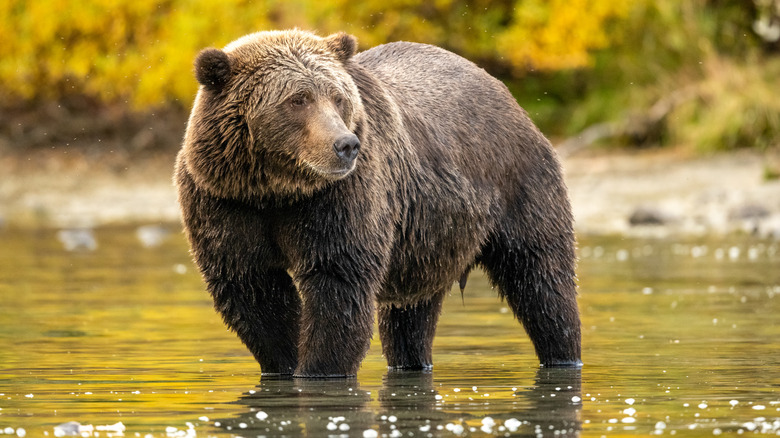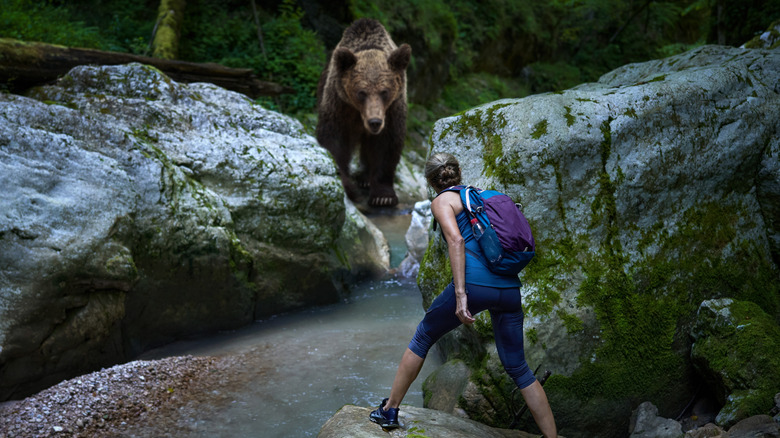Why You Should Avoid Dropping Your Backpack If You Encounter A Bear During Your Hike
The U.S. is home to 63 national parks — and exploring America's national parks is an incredible way to experience stunning landscapes and natural habitats. Although the scenic views are awe-inspiring, wilderness areas in the U.S. are home to a wide variety of animals, some of which can prove a danger to humans, like bears. Bear encounters can happen anywhere that bears live, but it's smart to know where you're most likely to see one. National parks with almost guaranteed bear sightings include Denali National Park, Yellowstone National Park, and Sequoia and Kings Canyon National Parks. Uncrowded U.S. national parks like Katmai National Park also have a high chance of spotting bears in the wild. When visiting these destinations, carry bear spray.
It's important to know what to do during a bear encounter to keep yourself safe, and there's one vital thing not to do during a bear encounter — try to avoid dropping your backpack if you meet a bear in the great outdoors. While it might seem like common sense to rid yourself of a cumbersome pack — to lighten your load and possibly distract the bear — this is one thing you should not do. A backpack gives your body, particularly your back, extra protection from the bear; dropping your pack makes you more physically vulnerable.
Keep your bag on you for added protection
As most packs contain a hiker's food, leaving your backpack can allow a bear to access your food, which should never be done. If a bear can access food during a close encounter, it will only encourage future dangerous encounters between bears and people in the outdoors, and increase attacks. If you meet a bear, make yourself look big and intimidating by moving your arms, and move to higher ground if possible. Avoid high-pitched screams as bears may think it's the sound of a prey animal.
Above all else, stay calm, and don't run away — bears might chase you. Use bear spray if a bear charges; it's important to keep bear spray somewhere that's easily accessible. If a bear does attack you, advice differs depending on the type of bear. In a black bear attack, do not play dead and instead fight back with anything you can. If a brown or grizzly bear attacks you, play dead by lying on your stomach. Keeping your pack on can also offer extra protection for your body in this worst case scenario. While seeing animals like bears in the wild can be exciting, always exercise caution when visiting areas with bears and know what to do in the event of an encounter.

